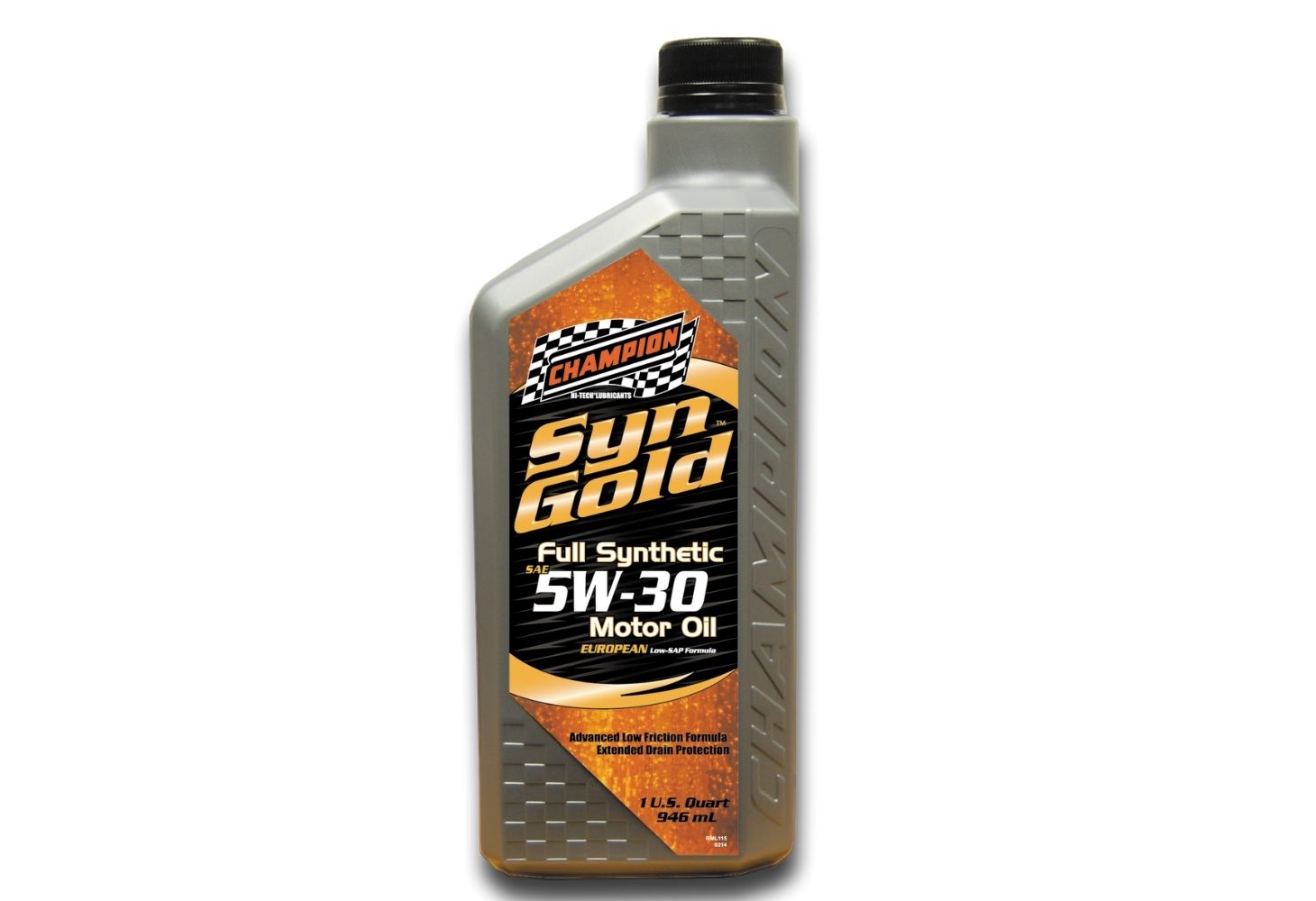
Champion Brands introduces low-SAPS motor oil for German cars
Champion Brands, LLC, a manufacturer of specialty lubricants for more than 65 years, based in Clinton, Missouri, U.S.A., has introduced a motor oil with lower phosphorus and sulphur content.
This so-called low-SAPS (Sulphated Ash, Phosphorus and Sulphur) formulation is designed for controlling oxidation, improving anti-wear, cleanliness, soot handling, reduced emissions, and improved fuel economy.
Phosphorus and sulphur normally comprise a significant portion of a motor oil’s additive ingredients and are adjusted by a parts-per-million (PPM) particle count.
Sulfated ash is not added to oil; it is the result of additives in the oil burning and creating ash kept to a minimum.
The Champion Low-SAP 5W-30 engine oil, Part #4436, has low ash characteristic, and is specifically formulated for European gasoline engines with 3-way catalytic converters as well as diesel engines with Diesel Particulate Filters (DPF).
OEM recommendations and specifications requiring a Low-SAPS formula include ACEA C3-12, MS-10896, MS-11106, Mercedes 229.51, VW 50400, VW 50700, BMW Longlife-04, and Porsche C30 plus other vehicles that are EURO 4, EURO 5 or EURO 6 emission regulation compliant.
“The combustion process creates particles that accumulate in the small pores of the particulate filter or catalytic converter, plugging it and dramatically decreasing their lifetime. Today, phosphorus and sulphur, generally used to provide wear protection and maintain engine cleanliness are considered too harsh and harmful in large doses for catalytic converters. They prevent the catalyst from removing the toxic substances from the exhaust,” said Karl Dedolph, Director of Racing & Performance, Champion Oil.
“Another parameter of Low-SAP oil is HTHS, or better known as High-Temperature/High-Shear. The viscosity of the oil, measured in HTHS, is related to the fuel economy and durability of your engine. HTHS viscosity is a measure of how well an engine oil protects during tough operating conditions, and influences factors such as fuel consumption and engine wear.”
“Lower HTHS viscosity values can improve fuel economy and higher HTHS viscosity values can provide better protection for the life of your European engine. The trick is finding the right balance. Our lab technicians at Champion with the help of our additive suppliers have really found that correct formula balance for this oil that meets or exceeds the needed Euro specifications,” said Dedolph.









